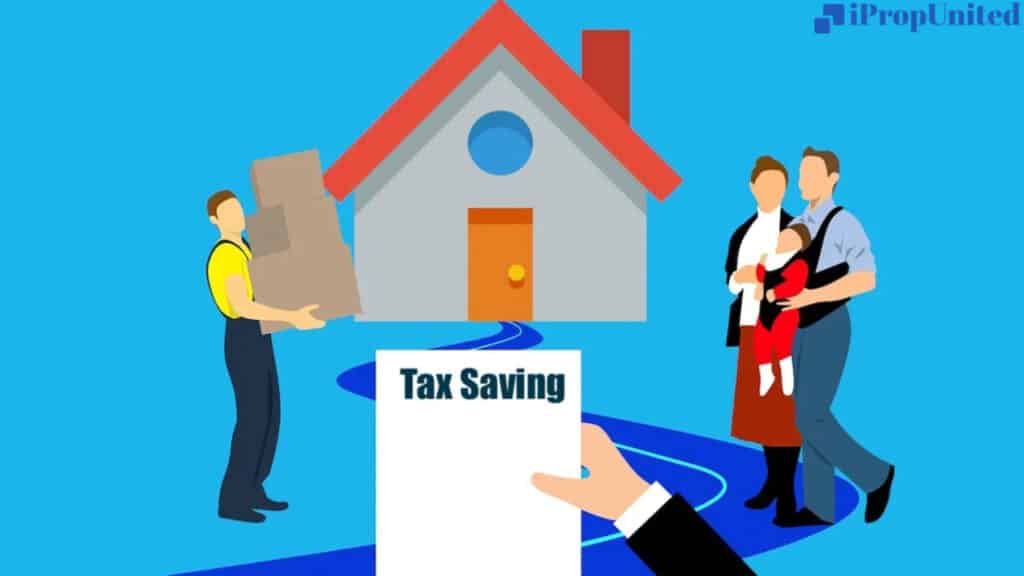Ever wondered why India has so many empty properties despite the increasing demand for residential real estate? Is it because of weak rental policies or unclear property rights? Or maybe keeping a vacant house helps you save on taxes? Before we get into the reasons, let’s first understand what qualifies as a vacant house and how such properties are taxed under the Income Tax Act.

In a country where every inch of usable space counts, owning an empty house or plot could be a great opportunity for real estate investors. But without knowing the basics, making the most of your sale or purchase can be tough. For example, what’s the difference between a vacant and an unoccupied house? Let’s answer all your queries, starting with what a vacant house is.
What is a vacant house?
So, a vacant house is simply a property that’s empty and doesn’t have any residents or tenants living in it. These houses can be found all over India and can be either residential or commercial properties. As per a 2019 report, there are around 11 million vacant houses in India, including unsold properties and abandoned houses. Now, you might be wondering why there are so many empty properties in India. Let’s explore some of the most common reasons and how they affect society.
Impact of a vacant house
Sometimes, a house can become vacant for various reasons, such as the owner moving away, facing financial difficulties, or passing away. However vacant houses can attract unwanted attention and become a headache to maintain. They can also lead to illegal activities like drug use, vandalism, and encroachment, which can decrease the value of properties in the neighborhood.
To tackle this issue, local authorities and property owners can take several steps, like offering incentives for property rehabilitation, implementing vacant property registration programs, and promoting affordable housing initiatives. Property owners can also consider renting out or selling their empty houses to potential buyers. This way, we can reduce the number of vacant properties and help develop the real estate market.
Difference between a vacant house and an unoccupied property
In the world of real estate, “vacant house” and “unoccupied property” are used interchangeably, but they have different meanings. Let me explain.
A vacant house is an empty property with no one living in it or renting it for a year or more. On the other hand, an unoccupied property is a furnished house that has no occupants at the moment but has the potential to be occupied. It could be a second home, a vacation property, or a house that’s temporarily vacant because the owner is away. It’s important to know that both vacant houses and unoccupied properties have implications on insurance and maintenance, which can be different.
How is a vacant house taxed?
Just because a house is empty doesn’t mean the owner doesn’t have to pay taxes. In India, how much tax you pay on an empty house depends on the state and the local municipal corporation. They usually calculate this tax based on how much the house could potentially be worth if it were rented out for a year.
For example, if Mr. A has an empty building in Mumbai that’s still under construction, he has to pay a tax of 0.5% of the land’s value. But if he had the same empty house in Delhi, he’d have to pay 15% of the value of the house, or the land it’s on every year.
Different types of vacant houses tax under the Income Tax Act
The Indian Income Tax Act applies taxes to different types of empty houses. There are three types of vacant houses:
Self-occupied property
Self-occupied property refers to a house that you own but doesn’t rent out, and it’s exempt from taxes. As per the FY 2019-20 update, homeowners can now claim up to two properties as self-occupied instead of one.
Deemed to-be-let-out property
If you own more than one house and all except one are self-occupied, the remaining house is considered as deemed to-be-let-out property. Even if it’s not rented out, it’s assumed to generate rental income and is taxable accordingly.
Let-out property
A let-out property is one that is rented out to tenants. The rental income earned from such properties is taxable under the Income Tax Act. You can deduct expenses related to the maintenance and repair of the property from the rental income.
What are the common tax deductions for vacant houses?
If you’re planning to invest in a vacant house, it’s important to know about the tax deductions that come along with it. Here’s a quick rundown of some of the things you can deduct from your taxable income:
Property Tax: Even if your house is vacant, you still need to pay property taxes. But the good news is that you can deduct these taxes from your taxable income.
Mortgage Interest: If you have a mortgage on your vacant house, you can deduct the interest paid on the loan. This deduction can significantly lower your taxable income.
Maintenance and Repairs: Since your house is vacant, you might need to spend money on repairs and maintenance. You can deduct these expenses from your taxable income.
Insurance Premiums: Insurance is crucial for safeguarding your vacant house from unforeseen events. You can deduct the premiums you pay for insuring your property from your taxable income.
To make the most of these deductions and stay updated on the latest tax regulations, it’s best to consult with a tax professional. By understanding the tax deductions for vacant houses, you can make informed decisions and maximize your tax savings.
Follow and Connect with us: Twitter, Facebook, Linkedin, Instagram








